Luchenko & Kuchar
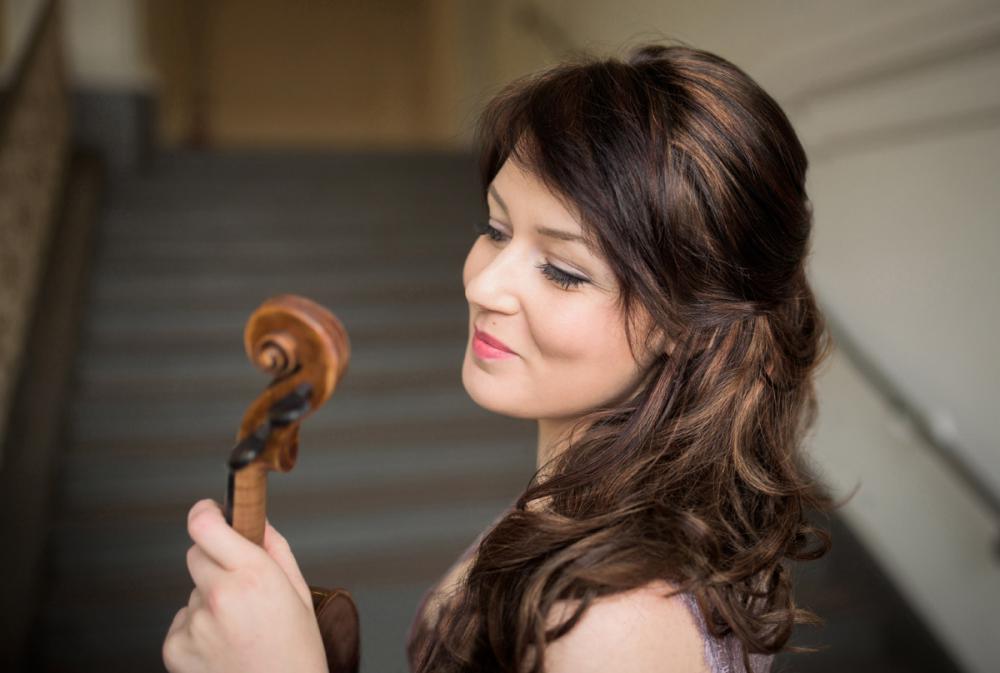
On Friday, March 12, 2021 Theodore Kuchar returns to conduct the Lviv National Philharmonic Orchestra of Ukraine in a program highlighted by the Dvorak Symphony No. 6 in D major, Op. 60. The concert begins with Stanislav Lyudkevych’s Symphonic Poem Moses and features the well-known and beloved Violin Concerto by Tchaikovsky. Making her debut in Lviv is one of Europe’s most successful and respected young solo violinists, Vladyslava Luchenko. Vladyslava was born in Kyiv in 1988 but left her family at an early age to pursue her studies in Switzerland with the legendary Zakhar Bron and on to the major career she now holds.
Both conductor and soloist sat for an extended and highly interesting conversation yesterday and here we have several highlights from that meeting.
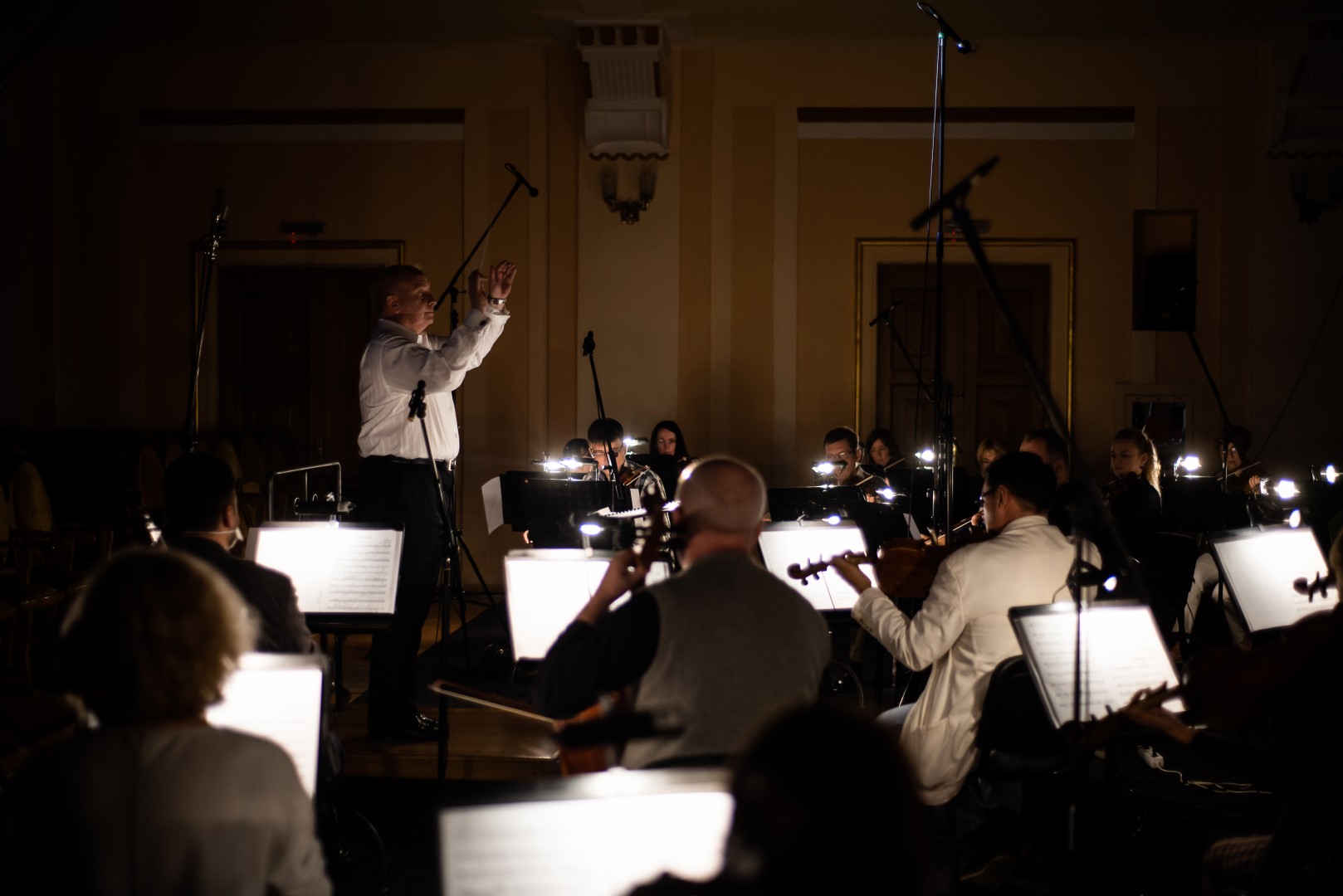
T.K.: – You left your home in Kyiv at a relatively young age, having had national successes in major competitions, to study with Zakhar Bron in Switzerland. In principle, this was likely a continuation of the Russian violin school and tradition that you were trained in yet Bron represented a different aspect of that tradition that you knew, not to mention that you were now in Switzerland and surrounded by students from different cultures and parts of the world.
Initially, was this a shock or a revelation? Were there significant changes made to your playing or was there a natural continuation of your early training?
V.L. Well, I would say both. More revelation though. As I was touring in Europe already from the age of 10, my first encounters with western culture were behind me. Already then I felt very much at ease with the way western society works. But of course short concert journies are not the same as to come to another country and start building a life from scratch there. In some ways, it was a shock. I
remember being very stressed because of the train schedule! The train would leave at an exact minute as stated on the schedule, which is unthinkable in eastern countries (laughing)! As well, all the meetings and appointments … so much precision! Of course, hundreds of emails almost about everything, which is so different from our Slavic way – we prefer to go and speak to people instead of the
“cold” e-mailing; so, these minor details, you know.
In terms of playing, I’d say it was a continuation and deepening of my already chosen musical path. My teachers in Ukraine were representatives of the so called “Russian School”, so when I came to the violin class of Zakhar Bron, I stepped into the legendary footsteps of David Oistrach, the tradition of violin playing which goes back to Stolarsky school and further to the most significant violinists of
the 19th century.
T.K. Not every young Ukrainian has the personal discipline and mental strength to make such a significant life change. In retrospect, was the timing absolutely right for you or do you today look back and contemplate having done things differently?
V.L. I believe in divine perfection in all of our choices and its perfect timing, even if in our minds we may believe some things should have happened differently. Initially, I had some regrets that i didn’t come to Bron’s class already as a child. Later, I looked back and recognised how much I would have lost in my growth as a human being. In Ukraine I received so much wisdom and care from my teachers and my family! I was so supported on my path as a violinist – motivated and, most importantly, surrounded with love. So, no, I wouldn’t have changed anything!
T.K. Clearly, you left Ukraine with the expectations and desire to prepare yourself for a solo career, even though that may have still been several years into the future. Was, or is, the only way of establishing a solo career via success in international competitions or has life shown that this is only one small part of the long process?
V.L. When I left Ukraine, I was very competitive and clearly believed that must be the only way to establish an international career. It was the only way I knew, as I was one of those “competition horses”, going to all the possible contests starting from the age of 10 – fighting for a ticket to a better life, which indeed gave me great opportunities and that better life. But I must say it never gave me joy. I spent many years fighting and competing until I understood this is not a way to become a real artist. You see, we may have all the prizes, recognition and success, but if our heart in music is not giving, not serving this world, our performance will stay empty – meaningless, cold and selfish. How can one open the greatest depths of the soul to speak the most sacred language of all – the music, if one is only being compared and comparing him or herself? There is no truth in fighting, when it’s about music. Once I finally released the pressure of needing to win competitions the most exciting projects, the most inspiring collaborations and opportunities opened up to me! So, I would say as such – the success of the competition path or not is up to each of us to decide. Most importantly, it comes from the place of truth in the heart, not a lack or fear that there is only one way.
T.K. We live in an age where, almost everywhere throughout the world, people question and express their concern about the disappearance of musical education. That conversation later evolves towards the future of classical music, about the stability of symphony orchestras and opera houses and otherwise. Clearly, this concern is more serious in certain parts of the world than others.
Although it was only two decades ago, you are still the product of a “golden age” of musical training and an exposure to serious music which not only resulted in music being a part of young people’s existence but also being a possible career in which so many young musicians chose to pursue. What was still so present in musical education, even 20 years ago, which seems to have largely disappeared today?
Had you been born 20 years later, in Ukraine or Switzerland, do you believe that your life’s direction would have been different?
V.L. Oh I believe it would have been different, indeed. When I was a student we all had that sense of hope, a sense of a greater purpose – we saw being an artist as a service to humanity. The 1990s were already turbulent times and it was sometimes very difficult, but people had great hope and faith in them. Personal values lay still on the side of non-material. Nowadays, that has changed tremendously. People are pushed into consumption and debt slavery, they need to survive, as the system grows greedier and greedier. So, where is there space for selfless service of being an artist? Where is tranquillity and time to grow into great depths of expression and art? Where is financial support for the most gifted to dedicate all their time to the training? And most importantly, what future awaits them in arts, if they know they can’t support themselves? People today prefer to prepare themselves for a profession which will allow them to feed their families later – I don’t blame them.
T.K. I believe that your education and personal decisions as to where and with whom to study were the result of a clear ambition to pursue and develop a successful solo career. Your period of study with Zakhar Bron clearly prepared you for this. When you left Bron and the “Russian School” of violin training you went to study with the wonderful Augustin Dumay in Brussels. How did this contrast in training and violinistic cultures change, develop and benefit you?
V.L. Well actually, after working with Bron I first spent two years in Berlin studying with Stephan Picard. His manner of teaching the violin was exactly the opposite to Bron! That was a big challenge for me. But I must say, looking back, I am so grateful for that. Picard led me to understanding about importance to details and the composer’s desire and intentions. Representing the “German School”, he gave me the tools to more carefully respect each style and period. With him I learned to put my own violinistic ego in the background and observe objectively the composer’s idea, which I believe serves a great deal even in the most brilliant solo compositions.
When I came to study with Augustin Dumay I was already a bit tamed (laughing)! The time with him was exceptional. He is, if I may say, one of the last of the greatest violinists of the golden era of the great soloists. The inspiration, the ideas he shares with his students are unbelievable. He gave me a gift of finding my own unique voice back, which is naturally to be lost in the process of education.
T.K. Quite clearly, you have been a very successful participant at several prestigious violin competitions in the world, including being the top prizewinner at the Tibor Varga Violin Competition in Switzerland. Is the perception of being a laureate at major competitions and the successful effect on one’s career a complete fairy-tale or is this an obligatory route towards a solo career?
V.L. I believe there are many different ways. Competitions msy open some doors, for sure, but interestingly enough that nowadays top soloists are rarely winners of big competitions. Times have changed and classical music is moving closer to showbiz. The requirements to build an international career lie not as much with winning competitions, but more with the very clever management and promotion.
T.K. I believe that in today’s musical world, the concertmaster of a major professional orchestra was one step from achieving a “solo career” as we once knew it. Does a major concertmaster position allow an exceptionally outstanding violinist a better possibility of achieving the aspirations of extensive solo or chamber music engagements today more so than success in the competition route may have several decades ago?
V.L. It may be true indeed. For sure it opens many doors, for instance, to festivals, teaching positions and the ability to play on great, fine instruments. Maybe the careers of being a soloist and concertmaster are still separate, but they are merging. Today, many outstanding young soloists become concertmasters as such positions are highly regarded and greatly respected. The best example are the concertmasters of the Berlin Philharmonic, Daishin Kashimoto and Noah Bendix-Balgley, who have won the greatest prizes and established international careers. The role of the concertmaster position remains as a high point in their achievements.
T.K. As you developed, or today acquaint yourself with compositions you have not played previously, are there recordings of certain violinists whom you specifically search? Are there specific violinists and/or performers that you have a special respect and admiration for?
V.L. When I first learn a new piece I try not to listen to recordings until I develop my own interpretation, my unique story. But I do listen to and admire the great violinists of today, like Janine Janssen and Lisa Batiashvili and, of course, the greats of the past such as David Oistrakh and Isaac Stern, as well. I have a very special place in my heart for Anne-Sophie Mutter and Maxim Vengerov. They were unknowingly my teachers when I was a child. In Ukraine during the 1990s compact disc recordings were unimaginably difficult and expensive to find, so when my parents finally could get me one new recording (once every several months), I’d listen to it for hours and hours, trying to copy all that incredible beauty and perfection I heard.
T.K. When the violin and your professional activities are not occupying your time do you have specific hobbies and interests which are closest to your heart and spirit?
V.L. The other side of my time and purpose here on earth is the spiritual journey, meditation, healing, assisting those on the way to their true nature, deep reflecting on the biggest questions humanity is asking since the beginning of time – who we are, why we are here. This has been a parallel path to the musical one from the earliest I can remember myself. I suppose my biggest interest in life is knowing about creation itself, the way to enlightenment. In my free time I go to seminars, or the teachings on personal healing, meeting with other lightworkers and healers. Many things may be included into that also not at all seemingly “spiritual” activities. Ultimately, I guess my other interest other than music is life itself!
T.K. At this moment, your closest relationship must be with the violin you are playing. What type of instrument are you performing on today?
V.L. Some time ago, when I was desperately looking to find a way to play a really fine violin for longer than simply several months on those temporary loans, I met an amazingly generous person, who agreed to buy the violin I now play – this was incredible luck! So now I play a Francesco Gobetti violin from 1710 for the past four years already. This is very rare violin – there are only approximately 25 instruments known in the world today. So I feel very fortunate and honoured to have this amazing violin on my side.
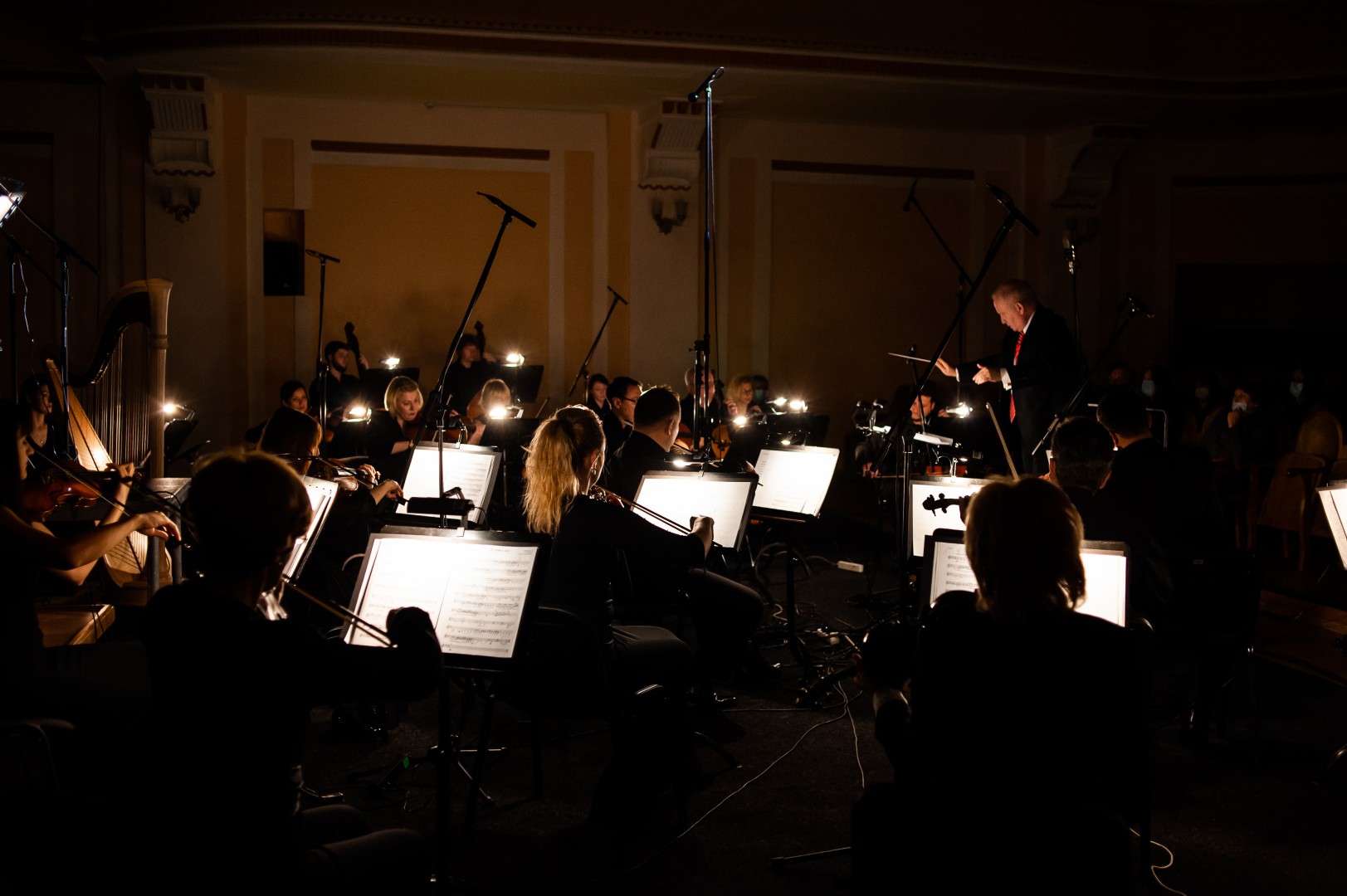
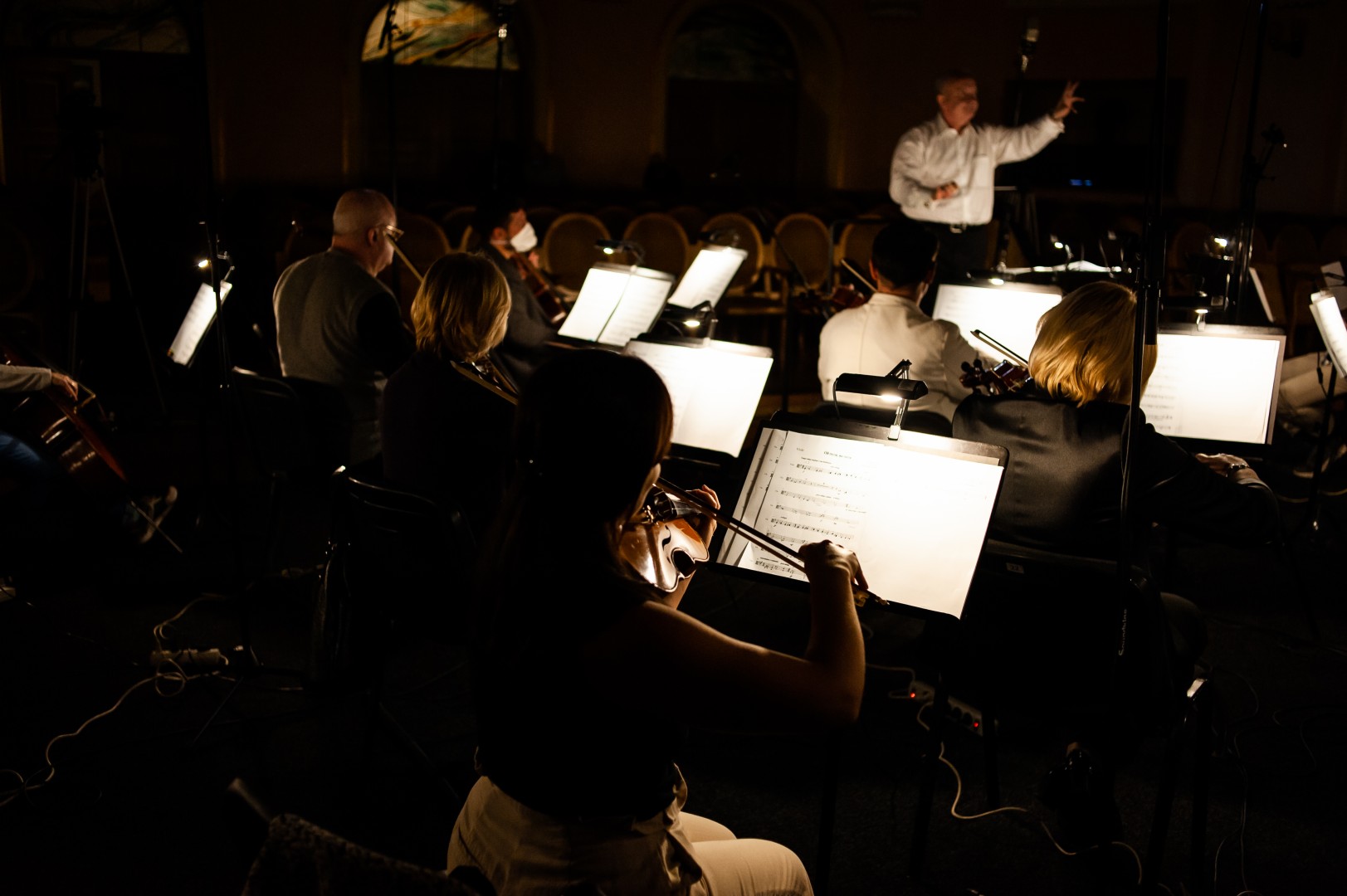
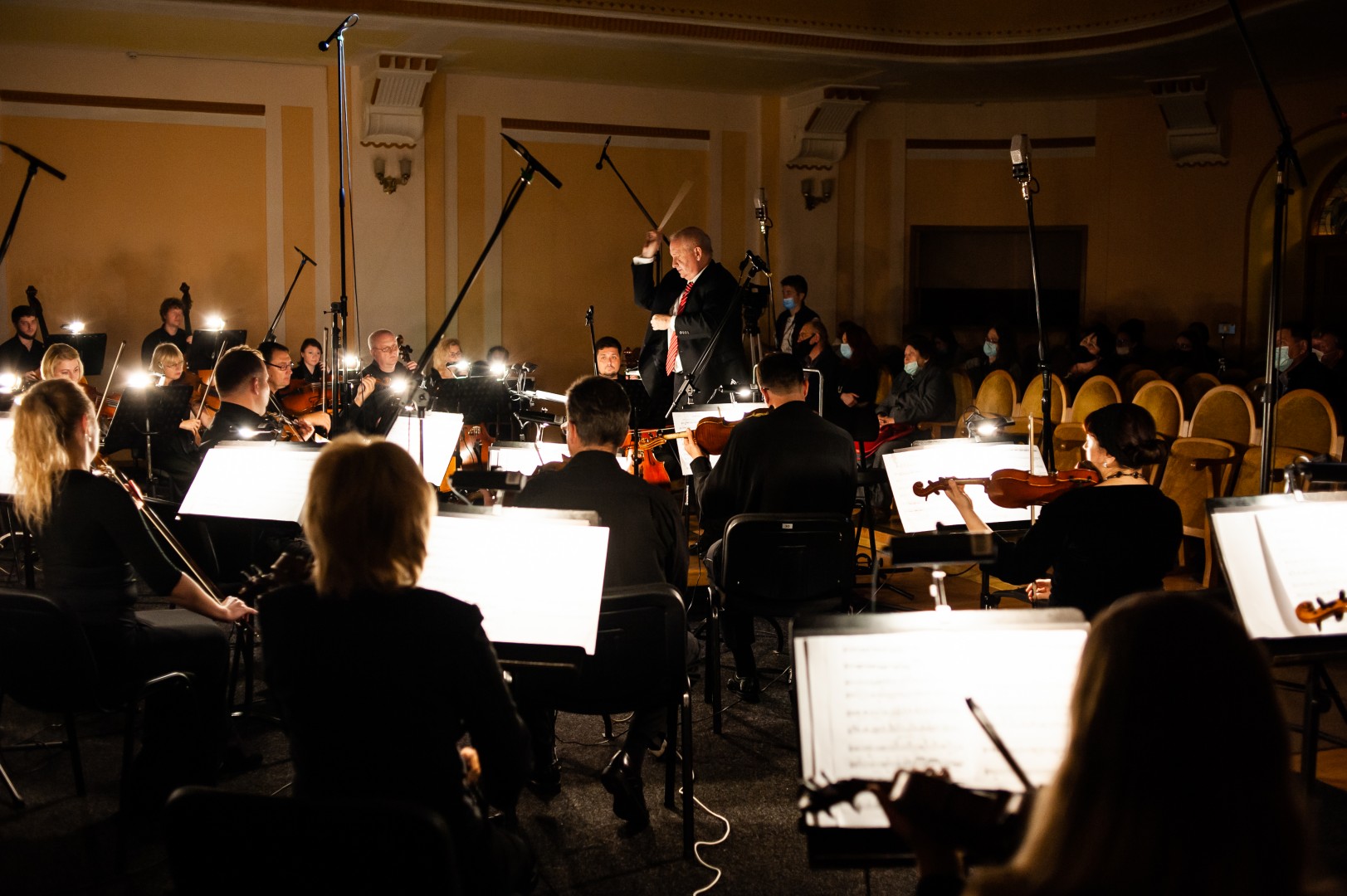
Vladyslava Luchenko and Theodore Kuchar perform the Tchaikovsky Violin Concerto with the Lviv National Philharmonic Orchestra of Ukraine on Friday, March 12, 2021 at 19:00
Share
Popular
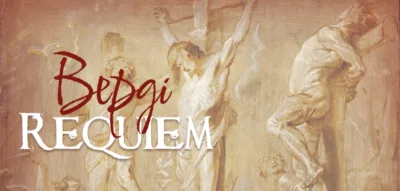 01.04.2025
Announcements
01.04.2025
Announcements
In memory of those killed in the Russian-Ukrainian war
On Holy Thursday, we invite you to a classical music event that will be a musical reflection on sacrifice, ...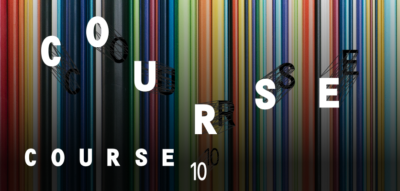 05.02.2025
Announcements
05.02.2025
Announcements
COURSE masterclasses begin
The anniversary, tenth edition of the COURSE masterclasses will be held fro...
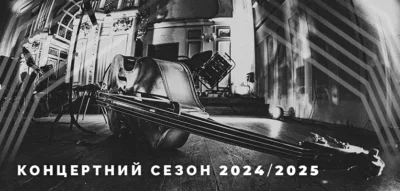 09.06.2025
AnnouncementsConcerts
09.06.2025
AnnouncementsConcerts
Philharmonic Summer
Every summer concert is both a conclusion and a warm invitation to meet again. After all, the ...
